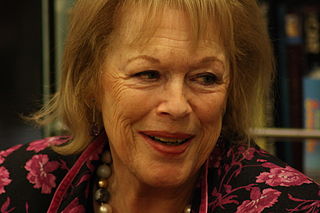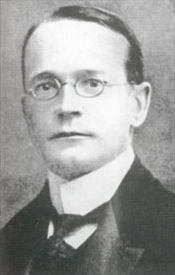Ein Zitat von Ariel Winter
Die Stärkung der Frau ist mir wirklich wichtig. Ich bin ein großer Nerd der Bücher aus dem 15. und 16. Jahrhundert, als die Männer alle Macht hatten und die Frauen nichts davon.
Verwandte Zitate
Im 20. Jahrhundert hatten wir ein Jahrhundert, in dem zu Beginn des Jahrhunderts der größte Teil der Welt landwirtschaftlich geprägt war und die Industrie sehr primitiv war. Am Ende dieses Jahrhunderts hatten wir Menschen im Orbit, wir waren auf dem Mond, wir hatten Menschen mit Mobiltelefonen und Farbfernsehern und dem Internet und erstaunlicher medizinischer Technologie aller Art.
Ich interessiere mich seit meinem 20. Lebensjahr für das 12. Jahrhundert, als es sehr in Mode war, von jedem, mit dem man anderer Meinung war, also im Grunde von jedem über 30, zu sagen: „Einer der großen Geister des 12. Jahrhunderts“, und eines Tages dachte ich: „Ich weiß nichts über das 12. Jahrhundert.“ Also fing ich an, Bücher zu kaufen, darüber zu lesen, und entdeckte, dass es eine Zeit großer Blüte war, eine Renaissance vor dem, was wir als Renaissance bezeichnen, der italienischen Renaissance des 16. Jahrhunderts.
Ich genieße auf jeden Fall liturgische Arbeit und Chorwerke aus dem 15. und 16. Jahrhundert, aber ich spiele in Kirchen mit ein wenig Angst, und das macht mir keinen Spaß, weil es all diese Probleme gibt. Das impliziert, dass man Teil des theologischen Apparats ist, etwa bei Atheisten oder so etwas, und das gefällt mir nicht. Ich spiele gerne mit der Form und bewohne die Tropen religiöser Musik ohne das Versprechen von Engeln am Ende. Es kann unangenehm sein, wissen Sie?
Wie Sie sich erinnern, befindet sich das Christentum in der christlichen Welt im 21. Jahrhundert, der Islam im 15. Jahrhundert. Ich möchte nicht sagen, dass der Islam rückständig ist; Ich möchte damit sagen, dass es bestimmte Erfahrungen gibt, die es nicht durchgemacht hat. Das Christentum erlebte die großen Religionskriege des 17. Jahrhunderts. Zum Glück für die Muslime gab es das im Islam nicht. Das Christentum entwickelte ein System der Toleranz. Der Islam war gegenüber der Christenheit immer toleranter.
Andere Jahrhunderte hatten ihre treibenden Kräfte. Wie wird unseres gewesen sein, wenn die Menschen eines Tages weit zurückblicken? Vielleicht wird es doch nicht das amerikanische Jahrhundert sein. Oder das russische Jahrhundert oder das atomare Jahrhundert. Wäre es nicht wunderbar, Phil, wenn es das Jahrhundert für alle wäre, in dem Menschen auf der ganzen Welt – freie Menschen – einen Weg finden würden, zusammenzuleben? Ich würde gerne dabei sein, um etwas davon zu sehen, sogar den Anfang.
Was meiner Meinung nach nicht funktioniert, ist Folgendes: Ein Wirtschaftssystem, das im 16. Jahrhundert gegründet wurde, und ein anderes, das im 19. Jahrhundert gegründet wurde. Ich habe diese Diskussion über Kapitalismus und Sozialismus satt; Wir leben im 21. Jahrhundert und brauchen ein Wirtschaftssystem, das auf Demokratie und einem ethischen Kodex basiert.
Was meiner Meinung nach nicht funktioniert, ist Folgendes: Ein Wirtschaftssystem, das im 16. Jahrhundert gegründet wurde, und ein anderes, das im 19. Jahrhundert gegründet wurde. Ich habe diese Diskussion über Kapitalismus und Sozialismus satt; wir leben im 21. Jahrhundert; Wir brauchen ein Wirtschaftssystem, das auf Demokratie und einem ethischen Kodex basiert.
Aus der Tatsache, dass das 19. Jahrhundert das Jahrhundert des Sozialismus, des Liberalismus und der Demokratie war, folgt daraus nicht zwangsläufig, dass das 20. Jahrhundert auch ein Jahrhundert des Sozialismus, des Liberalismus und der Demokratie sein muss: Politische Doktrinen gehen vorüber, aber die Menschheit bleibt bestehen, und das vielleicht auch Es ist eher zu erwarten, dass dies ein Jahrhundert der Autorität sein wird ... ein Jahrhundert des Faschismus. Denn wenn das 19. Jahrhundert ein Jahrhundert des Individualismus war, kann man erwarten, dass dies das Jahrhundert des Kollektivismus und damit das Jahrhundert des Staates sein wird.



































